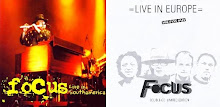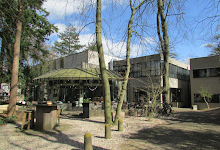Archive number: 33[U]
Title: Britannia
Genre: Live Elizabethan Instrumental
Venue: Rainbow Theatre, Finsbury Park, 232 Seven Sisters Road, N4 3NX (recorded using Pye Studios Mobile Unit and edited from the two performances)
Length: 3' 56”
Composer: John Dowland
Musicians: Jan Akkerman – Lute
Producer: Mike Vernon
Engineer: Phil Dunne
Date of recording/release: May 4, 5 1973/unreleased
Alternative version: A concerto version appears on Akkerman's solo album Tabernakel. He did it much later live and just on guitar (Live at the Priory).
Notes: This was the very final encore and featured only Akkerman. It was apparently an afterthought (though tuning a lute is no quick task) and some had left the theatre by this point. It features Akkerman unaccompanied for 3' 40" with clapping and cheering either side. After the initial enthusiasm Akkerman seems in danger of losing his audience but fights manfully on and eventually wins them.
A note on John Dowland (From Wikipedia)
John Dowland (1563-1626) English composer, singer and lutenist, best known today for his melancholy songs such as "Come, heavy sleep", "Come again", "Flow my tears", etc. His instrumental music has undergone a major revival and has been a source of repertoire for classical guitarists during the 20th Century.
Very little is known of his early life, but it is generally thought he was born in London. He went to Paris, 1580 where he was in service to the ambassador to the French court. He became a Roman Catholic at this time, which he claimed led to his not being offered a post at Elizabeth I's court. However, his conversion was unpublicised and being Catholic did not prevent other important musicians such as Byrd having a court career. Dowland worked instead for many years at the court of Christian IV of Denmark. He returned to England, 1606 and in 1612 secured a post as one of James I's lutenists. Interestingly there are no compositions dating from this time until his death. Most of his music is for his own instrument, the lute. It includes several books of solo lute works, lute songs (for one voice and lute), part-songs with lute accompaniment and several pieces for viol consort with lute. Poet Richard Barnfield wrote that Dowland's "heavenly touch upon the lute doth ravish human sense." He wrote what is probably his best known instrumental work, Lachrimae or Seaven Teares Figured in Seaven Passionate Pavans, a set of seven for five viols and lute, each based on Flow My Tears. It became one of the best known pieces of consort music in his own time. His pavane Lachrymae antiquae was also one of the big hits of the 17th Century. Dowland's music often displays the melancholia so fashionable in music at that time. He wrote a consort piece with the punning title Semper Dowland, semper dolens (always Dowland, always doleful), which may be said to sum up much of his work. His Come Heavy Sleepe, the Image of True Death, was the inspiration for Britten's Nocturnal after John Dowland for guitar, written in 1964 for guitarist Julian Bream. His music became part of the repertoire of the early music revival with Chrisopher Hogwood and David Munrow and the Early Music Consort in the late 1960s and later with the Academy of Ancient Music from the early 1970s.





















No comments:
Post a Comment